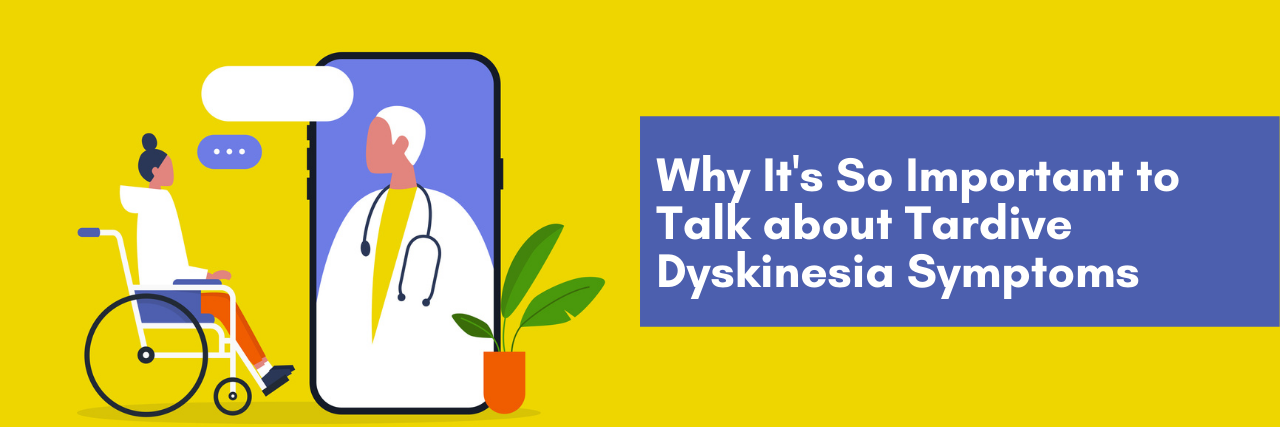When tardive dyskinesia (TD) was first mentioned diagnostically to me, I still felt buffeted by the idea of my body making any unwanted motion — let alone that it had been caused by a medication I had willingly taken. Hearing that this extremely challenging, life-changing condition was probably permanent was too much at the time. At first I cowered, wallowing in shame and pity, and then I shifted to blame and fury. I perused all the medication information sheets and scoured the side effects. I even remembered seeing TD listed there, but I didn’t understand what this really meant to live with tardive dyskinesia, how it would really feel or how my appearance would change drastically. I didn’t feel ready for new limitations in my life.
At the beginning of my life with TD, I was not an integral part of my medical team. I didn’t share information or act as a patient-partner with my doctor. Honestly, I wasn’t always ready to listen to my team. Instead, I mostly blamed every last one of those professionals; it felt paramount to me to blame someone. It took some hearty introspection and the passage of a significant period of time before I finally realized that I was key to receiving the best treatment for me.
I know myself better than anyone else can; only I can provide my relevant history. I alone am aware of the plethora of medications I’ve taken over the years in sometimes vain attempts to treat various conditions. I’ve accepted that it is my responsibility to shed light on all the intricacies of my medical history that have brought me here, including procedures and previous hospitalizations. While medical professionals do communicate by sharing any visit summaries with colleagues, I understand my role as the connector in between those visits. I must provide the detailed information that may fall through the cracks and enable my care team to find the common threads, the strands to a solution.
It’s also important for me to accurately depict my symptoms. A physician can observe my twitches, grimaces and tapping, but a brief office visit can’t deliver an in-depth view of the complexity of my symptoms, especially as they relate to various situations in my life. During that face-to-face (or electronic) meeting, doctors can’t often discern the severity of the impact these unwanted movements have on my emotions, social encounters or my ability to complete daily activities. Only I truly understand the depth and breadth of TD in my life.
Talking about the symptoms that impact me most is crucial to ensuring quality treatment. Here’s a simple example that made life easier: Sometimes I feel embarrassed by the movement of chewing, biting and grimacing with the right side of my mouth. I don’t notice it a lot because I automatically stop it when I look in a mirror. When I’m speaking it isn’t noticeable either. When I smile for a photograph, it’s also absent. However, I’ve seen myself on video a few times and have felt embarrassed. I’m aware of these symptoms because I can feel myself doing it, and I’ve developed mouth sores from the repetitive motion. When I discussed this specific concern with some of the professionals on my treatment team, they recommended various “tricks” to provide relief. Chewing gum or a mint, placing a finger on my bottom lip, tapping my face with a pencil, using lots of lip balm … these all provide some relief!
As those common threads lengthen, overlap and tangle over time, communication remains essential, as my diagnosis is further defined and alternative treatment is considered. My doctors’ medical knowledge and my self-knowledge are integral toward untangling the knots on my route toward disease management. Patience and perseverance serve my entire care team well as we continue on the journey of treating my tardive dyskinesia.
A lot of the time, this journey is not easy, but TD is only a tiny part of me. I’m a complex woman with ideas and relationships, goals and aspirations. I’m a well-educated woman of a certain age with a husband and children, and I have responsibilities and dreams. I have brothers and sisters, friends and social connections that are important to me. I have interests, hobbies and beliefs that all intertwine to make me the person I am. This “me” must play a part in my diagnosis and treatment too, and I realize that’s impossible unless I’m committed to sharing all my sides with my doctors.
Life with tardive dyskinesia has been challenging. Sometimes I still want to unravel the past to hopefully discover and eliminate the cause. I want to answer the question of: “Why did this happen to me?” But then I realize that I can’t change the past. Nowadays, I spend less time looking back and more time striving to focus on the here and now — or even optimistically on the future.
Whether I’m talking about bothersome symptoms, seeking methods to ease the negative impact or discussing more significant medical treatment options, being a contributing team player in my treatment is the best way to ensure a positive and productive future, even with tardive dyskinesia. It’s only through communicating openly, effectively and frequently with my care providers that I can help them untangle and address my health concerns.

